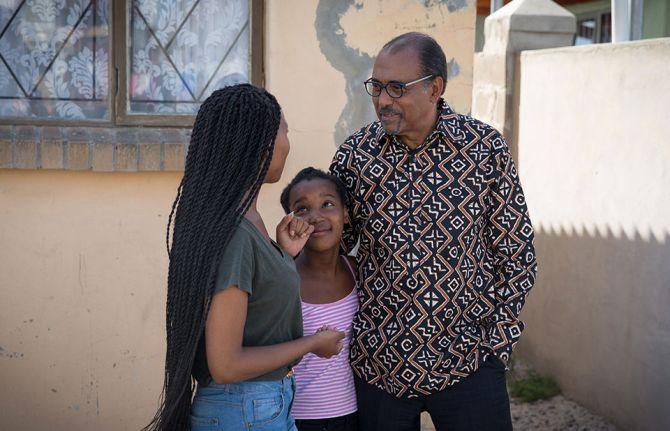

Press Statement
World AIDS Day message from UNAIDS Executive Director
24 November 2017 24 November 20171 December 2017
Michel Sidibé
Executive Director of UNAIDS
Under-Secretary-General of the United Nations
This World AIDS Day, we are highlighting the importance of the right to health and the challenges that people living with and affected by HIV face in fulfilling that right.
The right to health is a fundamental human right—everybody has the right to the enjoyment of the highest attainable standard of physical and mental health, as enshrined in the International Covenant on Economic, Social and Cultural Rights.
The world will not achieve the Sustainable Development Goals—which include the target of ending AIDS by 2030—without people attaining their right to health. The right to health is interrelated with a range of other rights, including the rights to sanitation, food, decent housing, healthy working conditions and a clean environment.
The right to health means many different things: that no one person has a greater right to health care than anyone else; that there is adequate health-care infrastructure; that health-care services are respectful and non-discriminatory; and that health care must be medically appropriate and of good quality. But the right to health is more than that—by attaining the right to health, people’s dreams and promises can be fulfilled.
On every World AIDS Day, we look back to remember our family members and friends who have died from AIDS-related illnesses and recommit our solidarity with all who are living with or affected by HIV.
From the beginning, the AIDS response was built on the fundamental right to health and well-being. The AIDS community advocated for rights-based systems for health and to accelerate efforts for the world to understand HIV: how to prevent it and how to treat it.
Too many people—especially those who are the most marginalized and most affected by HIV—still face challenges in accessing the health and social services they urgently need. We all must continue to stand shoulder to shoulder with the people being left behind and demand that no one is denied their human rights.
This year has seen significant steps on the way to meeting the 90–90–90 treatment targets towards ending AIDS by 2030. Nearly 21 million people living with HIV are now on treatment and new HIV infections and AIDS-related deaths are declining in many parts of the world. But we shouldn’t be complacent. In eastern Europe and central Asia, new HIV infections have risen by 60% since 2010 and AIDS-related deaths by 27%. Western and central Africa is still being left behind. Two out of three people are not accessing treatment. We cannot have a two-speed approach to ending AIDS.
For all the successes, AIDS is not yet over. But by ensuring that everyone, everywhere accesses their right to health, it can be.
UNAIDS
The Joint United Nations Programme on HIV/AIDS (UNAIDS) leads and inspires the world to achieve its shared vision of zero new HIV infections, zero discrimination and zero AIDS-related deaths. UNAIDS unites the efforts of 11 UN organizations—UNHCR, UNICEF, WFP, UNDP, UNFPA, UNODC, UN Women, ILO, UNESCO, WHO and the World Bank—and works closely with global and national partners towards ending the AIDS epidemic by 2030 as part of the Sustainable Development Goals. Learn more at unaids.org and connect with us on Facebook, Twitter, Instagram and YouTube.
Press centre
Download the printable version (PDF)
